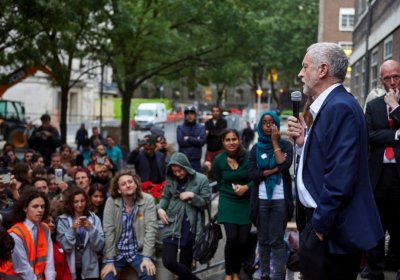Britain goes to the polls on December 12, in what could be the most important general election in a generation. Boris Johnson’s increasingly right-wing and chaotic Conservative Party is generally seen as the likely victor, but Labour’s left-wing leader Jeremy Corbyn could once again surprise, writes Derek Wall.
British elections
Theresa May is now Britain’s prime minister in name only. Leading a government that may collapse within days, propped up (she hopes) by the homophobes of the Democratic Unionist Party, it is clear her time is nearly up.
So while May is in office but not in power, who has stepped into the vacuum of leadership she has left? Jeremy Corbyn.
The huge Labour losses in the May 4 local council elections are just what the Labour Right was hoping for.
The left has to be crystal clear about what is happening here. There are many subsidiary factors, but the root of the Conservative Party's substantial gains – 500 seats won against about 400 losses for Labour – is the xenophobic nationalism of Brexit which the Tories have used ruthlessly.
This is going to be an election based more on competing policies and visions of society than any other election for a long time. Mark Serwotka, general secretary of the Public and Commercial Services union, pointed out at the London May Day rally that this is completely different to the past two elections where the challenge was to spot the difference — elections that Labour lost.




